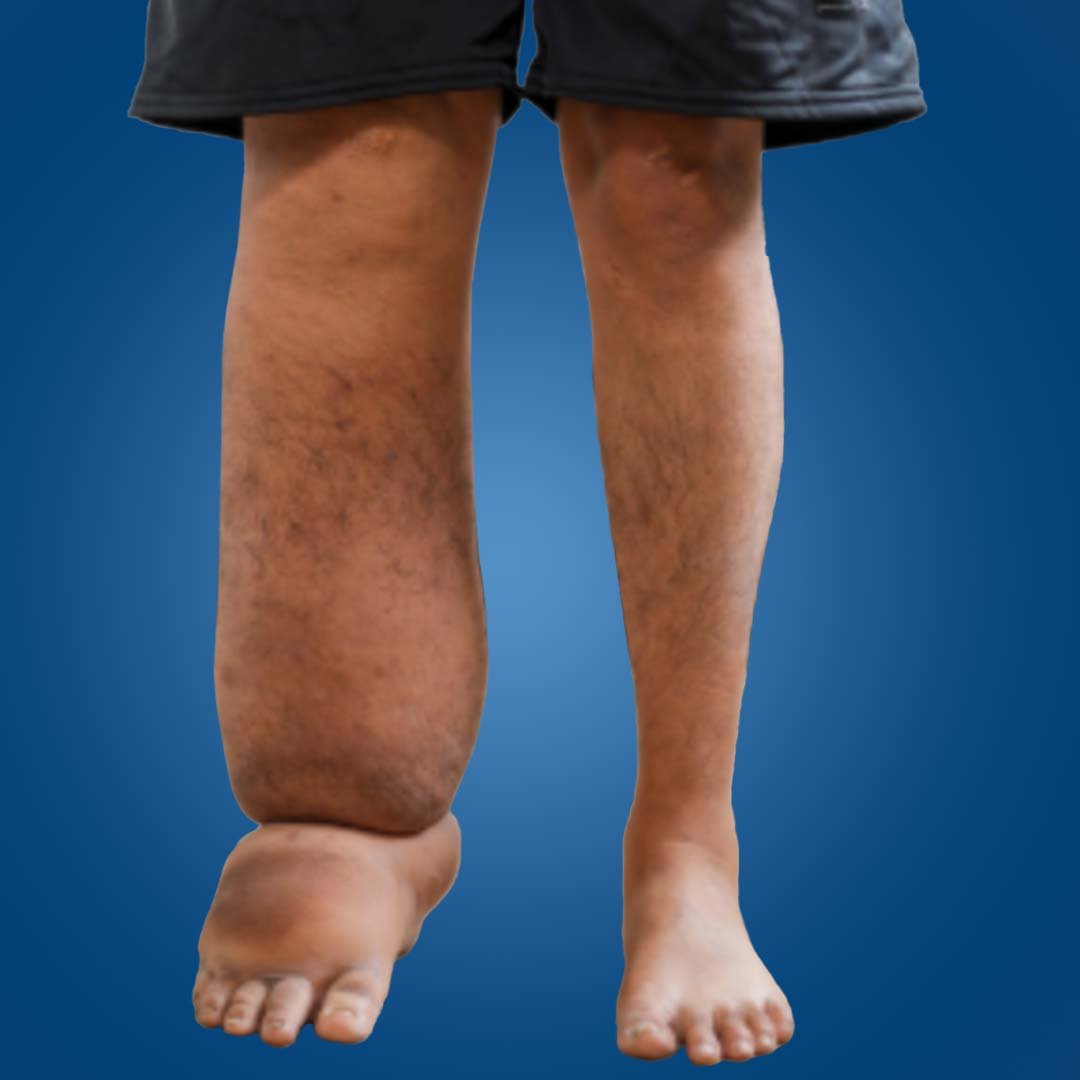What is Lymphedema?
Lower limb lymphedema is the swelling of legs caused by impaired lymphatic drainage, leading to fluid accumulation in tissues. It may develop after surgery, cancer treatment, infections, or congenital lymphatic defects. Common signs include heaviness, swelling, and recurrent infections. Physiotherapy interventions such as manual lymphatic drainage, compression therapy, exercise, and skin care play a vital role in controlling symptoms, preventing complications, and improving mobility and quality of life.
Causes of Lower Limb Lymphedema:
- Cancer treatments (lymph node removal, radiation)
- Recurrent infections (cellulitis, filariasis)
- Trauma or surgery affecting lymphatic vessels
- Congenital lymphatic system abnormalities
- Obesity-related lymphatic strain
- Chronic venous insufficiency
- Immobility or reduced circulation
Symptoms of Lower Limb Lymphedema:
- Swelling in one or both legs
- Heaviness and tightness in the limbs
- Skin thickening or hardening (fibrosis)
- Recurrent skin infections or wounds
- Reduced ankle and foot mobility
- Discomfort, aching, or tenderness
- Difficulty wearing footwear or clothing
Step forward with lighter, healthier legs choose MY PAIN CLINIC GLOBAL for specialized physiotherapy care that manages swelling, protects your skin, and restores active living.


